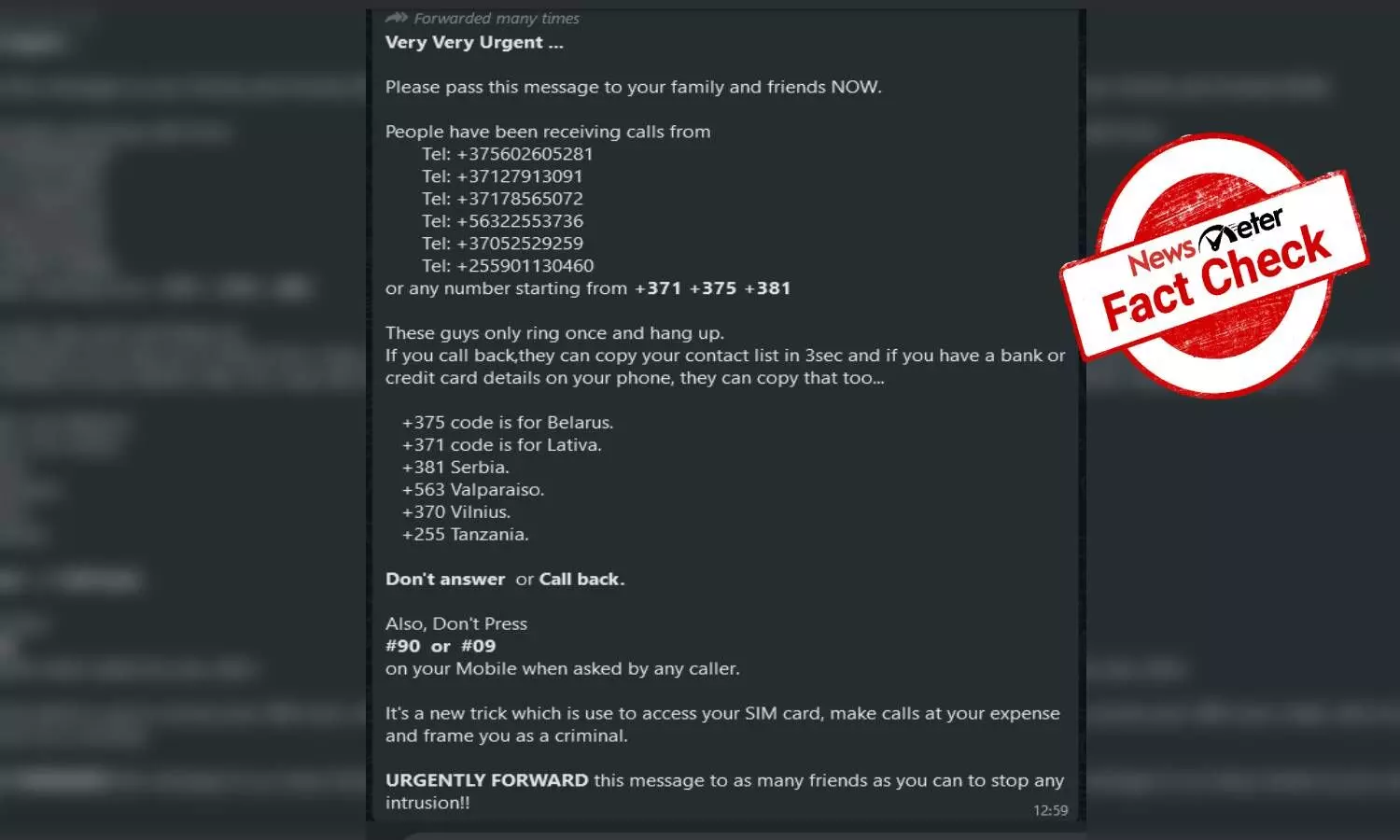Fact Check: WhatsApp forward claiming phone data can be stolen directly via phone calls is false
A WhatsApp forward has been making rounds claiming that calling certain numbers can result in the caller exposing their contact list and bank details to criminals within three seconds of the call.
By Kedar Nadella
Hyderabad: A WhatsApp forward has been making rounds claiming that calling certain numbers can result in the caller exposing their contact list and bank details to criminals within three seconds of the call.
The message has a list of phone numbers with country codes of Belarus, Lativa, Valparasio, Vilnius and Tanzania.
It also warned against pressing #90 or #09 on the phone when asked by any caller. It claimed this will give the receiver access to the caller's SIM and hijack its phone functions.
Fact Check
The claim people can steal your info if you call these certain numbers is false. You will only lose your prepaid money by calling them.
The type of scam used here is called Wangiri that originated in Japan. The term means "one (ring) and cut" in Japanese. The Federal Communications Commission (FCC) of the USA has warned about the 'One Ring' phone scam callers who are luring people into calling certain numbers. The longer you stay on the line, the more money you lose.
https://www.howtogeek.com/449936/what-is-a-wangiri-or-one-ring-phone-scam/
There is no direct way any scammer can directly get access to your contact list or bank details just through a call. But, knowing your phone number is enough to get access to your email or other accounts. The criminals might perform social engineering by pretending to be someone from a bank or your network service and obtain your personal information which can be used to get your bank account details.
In case of the second claim, too, there is no evidence to support that scammers can get a duplicate of your SIM if you type #90 or #09. But a duplicate of your SIM can be created by hackers if they know your personal details which they can use with your network care representative and 'port out' the phone number to a different SIM.
You can avoid this by creating a two-factor authentication system apart from your cell phone number. Scammers can also get access to your phone if you download a malicious app or click on a suspicious link.
The FCC also has a page asking people not to fall for the 90# telephone scam which can only target business landline connections.
The WhatsApp message with the same numbers has been debunked internationally too. As per an article published last year in the 'thejournal.ie', US fact-checkers Snopes had debunked the same claim in October 2012.
A report by 'Firstpost' also mentioned that SIM card cloning "was possible through a hardware tool, capable of reading and copying information from it, doing so 'wirelessly or remotely intercepting information contained within the SIM' is very difficult, though possible."
Nevertheless, it is always good to never answer or call back numbers that you weren't expecting a call from or with an unrecognized country code.
Hence, the claim that scammers can get access to your phone by making you call certain numbers or making you type certain numbers on the phone is false.